Jean-Baptiste Poquelin (baptized 15 January 1622; died 17 February 1673), known by his stage name Molière, was a French playwright, actor and poet, widely regarded as one of the greatest writers in the French language and universal literature. His extant works include comedies, farces, tragicomedies, comédie-ballets and more. His plays have been translated into every major living language and are performed at the Comédie-Française more often than those of any other playwright today. His influence is such that the French language itself is often referred to as the "language of Molière".
Born into a prosperous family and having studied at the Collège de Clermont (now Lycée Louis-le-Grand), Molière was well suited to begin a life in the theater. Thirteen years as an itinerant actor helped him polish his comic abilities while he began writing, combining Commedia dell'arte elements with the more refined French comedy.
Through the patronage of aristocrats including Philippe I, Duke of Orléans—the brother of Louis XIV—Molière procured a command performance before the King at the Louvre. Performing a classic play by Pierre Corneille and a farce of his own, The Doctor in Love, Molière was granted the use of salle du Petit-Bourbon near the Louvre, a spacious room appointed for theatrical performances. Later, he was granted the use of the theater in the Palais-Royal. In both locations Molière found success among Parisians with plays such as The Affected Ladies, The School for Husbands and The School for Wives. This royal favor brought a royal pension to his troupe and the title Troupe du Roi ("The King's Troupe"). Molière continued as the official author of court entertainments.
Despite the adulation of the court and Parisians, Molière's satires attracted criticism from churchmen. For Tartuffe's impiety, the Catholic Church denounced this study of religious hypocrisy followed by the Parliament's ban, while Don Juan was withdrawn and never restaged by Molière. His hard work in so many theatrical capacities took its toll on his health and, by 1667, he was forced to take a break from the stage. In 1673, during a production of his final play, The Imaginary Invalid, Molière, who suffered from pulmonary tuberculosis, was seized by a coughing fit and a hemorrhage while playing the hypochondriac Argan. He finished the performance but collapsed again and died a few hours later.
Stamps from France, Monaco, Paraguay and New Caledonia depicting Molière
1918 Born: Gamal Abdel Nasser, Egyptian colonel and politician, 2nd President of Egypt (d. 1970)
Gamal Abdel Nasser Hussein (15 January 1918 – 28 September 1970) was the second President of Egypt, serving from 1954 until his death in 1970. Nasser led the 1952 overthrow of the monarchy and introduced far-reaching land reforms the following year. Following a 1954 attempt on his life by a Muslim Brotherhood member, he cracked down on the organization, put President Mohamed Naguib under house arrest and assumed executive office. He was formally elected president in June 1956.
Nasser's popularity in Egypt and the Arab world skyrocketed after his nationalization of the Suez Canal and his political victory in the subsequent Suez Crisis. Calls for pan-Arab unity under his leadership increased, culminating with the formation of the United Arab Republic with Syria from 1958 to 1961. In 1962, Nasser began a series of major socialist measures and modernization reforms in Egypt. Despite setbacks to his pan-Arabist cause, by 1963 Nasser's supporters gained power in several Arab countries, but he became embroiled in the North Yemen Civil War and eventually the much larger Arab Cold War. He began his second presidential term in March 1965 after his political opponents were banned from running. Following Egypt's defeat by Israel in the 1967 Six-Day War, Nasser resigned, but he returned to office after popular demonstrations called for his reinstatement. By 1968, Nasser had appointed himself Prime Minister, launched the War of Attrition to regain lost territory, began a process of depoliticizing the military and issued a set of political liberalization reforms. After the conclusion of the 1970 Arab League summit, Nasser suffered a heart attack and died. His funeral in Cairo drew five million mourners and an outpouring of grief across the Arab world.
Nasser remains an iconic figure in the Arab world, particularly for his strides towards social justice and Arab unity, modernization policies and anti-imperialist efforts. His presidency also encouraged and coincided with an Egyptian cultural boom and launched large industrial projects, including the Aswan Dam and Helwan city. Nasser's detractors criticize his authoritarianism, his human rights violations and his dominance of military over civil institutions, establishing a pattern of military and dictatorial rule in Egypt.
Stamps from Egypt and Senegal depicting Gamal Abdel Nasser
1919 Died: Rosa Luxemburg, Polish-Russian economist and philosopher (b. 1871)
Rosa Luxemburg (5 March 1871 – 15 January 1919) was a Polish Marxist, philosopher, economist, anti-war activist and revolutionary socialist who became a naturalized German citizen at the age of 28. Successively, she was a member of the Social Democracy of the Kingdom of Poland and Lithuania (SDKPiL), the Social Democratic Party of Germany (SPD), the Independent Social Democratic Party (USPD) and the Communist Party of Germany (KPD).
After the SPD supported German involvement in World War I in 1915, Luxemburg and Karl Liebknecht co-founded the anti-war Spartacus League (Spartakusbund) which eventually became the KPD. During the November Revolution, she co-founded the newspaper Die Rote Fahne (The Red Flag), the central organ of the Spartacist movement. Luxemburg considered the Spartacist uprising of January 1919 a blunder, but supported the attempted overthrow of the government and rejected any attempt at a negotiated solution. Friedrich Ebert's majority SPD government crushed the revolt and the Spartakusbund by sending in the Freikorps, government-sponsored paramilitary groups consisting mostly of World War I veterans. Freikorps troops captured and summarily executed Luxemburg and Liebknecht during the rebellion. Luxemburg's body was thrown in the Landwehr Canal in Berlin.
Due to her pointed criticism of both the Leninist and the more moderate social democratic schools of socialism, Luxemburg has had a somewhat ambivalent reception among scholars and theorists of the political left. Nonetheless, Luxemburg and Liebknecht were extensively idolized as communist martyrs by the East German communist regime. The German Federal Office for the Protection of the Constitution notes that idolization of Luxemburg and Liebknecht is an important tradition of German far-left extremism.
1970 – Muammar Gaddafi is proclaimed premier of Libya.
Muammar Mohammed Abu Minyar al-Gaddafi (c. 1942 – 20 October 2011), commonly known as Colonel Gaddafi, was a Libyan revolutionary, politician, and political theorist. He governed Libya as Revolutionary Chairman of the Libyan Arab Republic from 1969 to 1977, and then as the "Brotherly Leader" of the Great Socialist People's Libyan Arab Jamahiriya from 1977 to 2011. He was initially ideologically committed to Arab nationalism and Arab socialism but later ruled according to his own Third International Theory.
Born near Sirte, Italian Libya to a poor Bedouin family, Gaddafi became an Arab nationalist while at school in Sabha, later enrolling in the Royal Military Academy, Benghazi. Within the military, he founded a revolutionary group which deposed the Western-backed Senussi monarchy of Idris in a 1969 coup. Having taken power, Gaddafi converted Libya into a republic governed by his Revolutionary Command Council. Ruling by decree, he deported Libya's Italian and Jewish populations and ejected its Western military bases. Strengthening ties to Arab nationalist governments—particularly Gamal Abdel Nasser's Egypt—he unsuccessfully advocated Pan-Arab political union. An Islamic modernist, he introduced sharia as the basis for the legal system and promoted "Islamic socialism". He nationalized the oil industry and used the increasing state revenues to bolster the military, fund foreign revolutionaries, and implement social programs emphasizing house-building, healthcare and education projects. In 1973, he initiated a "Popular Revolution" with the formation of Basic People's Congresses, presented as a system of direct democracy, but retained personal control over major decisions. He outlined his Third International Theory that year, publishing these ideas in The Green Book.
Gaddafi transformed Libya into a new socialist state called a Jamahiriya ("state of the masses") in 1977. He officially adopted a symbolic role in governance but remained head of both the military and the Revolutionary Committees responsible for policing and suppressing dissent. During the 1970s and 1980s, Libya's unsuccessful border conflicts with Egypt and Chad, support for foreign militants, and alleged responsibility for the Lockerbie bombing in Scotland left it increasingly isolated on the world stage. A particularly hostile relationship developed with the United States, United Kingdom, and Israel, resulting in the 1986 U.S. bombing of Libya and United Nations–imposed economic sanctions. From 1999, Gaddafi shunned Arab socialism and encouraged economic privatization, rapprochement with Western nations, and Pan-Africanism; he was Chairperson of the African Union from 2009 to 2010. Amid the 2011 Arab Spring, protests against widespread corruption and unemployment broke out in eastern Libya. The situation descended into civil war, in which NATO intervened militarily on the side of the anti-Gaddafist National Transitional Council (NTC). The government was overthrown, and Gaddafi retreated to Sirte, only to be captured and killed by NTC militants.
A highly divisive figure, Gaddafi dominated Libya's politics for four decades and was the subject of a pervasive cult of personality. He was decorated with various awards and praised for his anti-imperialist stance, support for Arab—and then African—unity, and for significant improvements that his government brought to the Libyan people's quality of life. Conversely, many Libyans strongly opposed his social and economic reforms, and he was posthumously accused of sexual abuse. He was condemned by many as a dictator whose authoritarian administration violated human rights and financed global terrorism.
Libyan stamps depicting Gaddafi


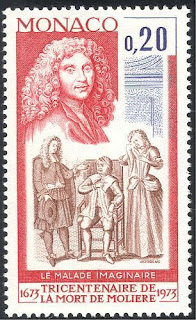
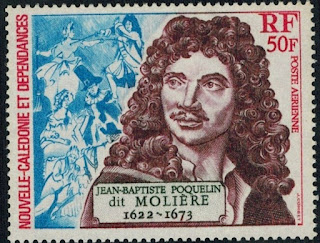

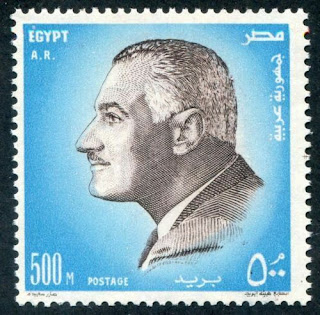
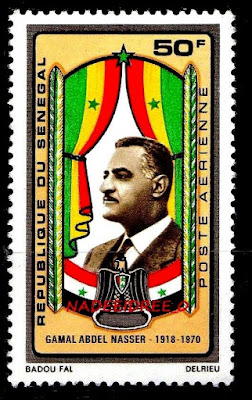


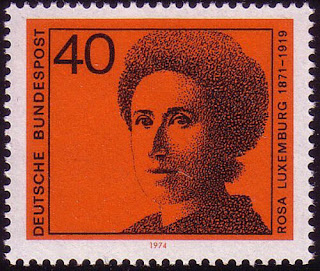

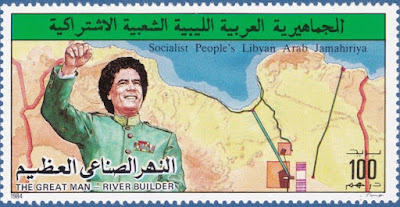
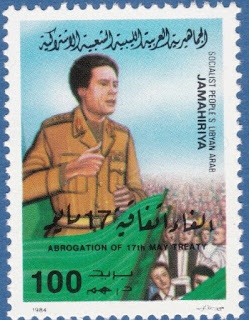
No comments:
Post a Comment